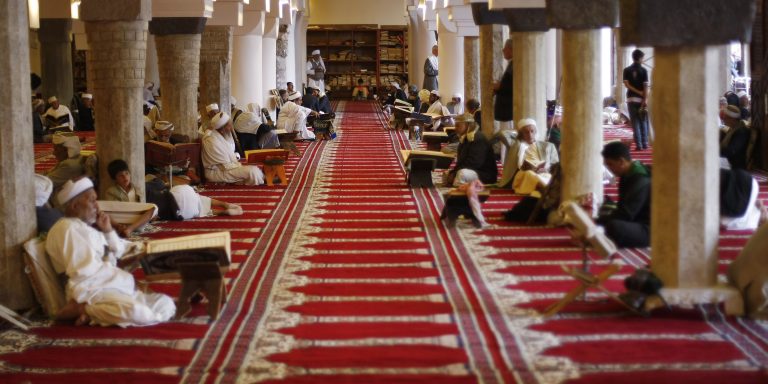INTELBRIEF
May 17, 2018
IntelBrief: Assassinating Yemen’s Moderate Clerics

- According to an Associated Press report, more than 25 clerics have been assassinated in southern Yemen since the beginning of 2016.
- Even as the UAE denies its militias are behind the killings, local sentiment is turning against the UAE.
- While supporting the return of exiled President Hadi, the UAE targets Yemen’s branch of the Muslim Brotherhood, which also supports Hadi.
- The Saudi-led coalition against the Iran-supported Houthis continues to be a nightmarish quagmire, with coalition partners UAE and Saudi Arabia competing with each other for influence.
.
Since 2016, according to a study by the Associated Press, more than 25 clerics have been assassinated in the port city of Aden and other parts of southern Yemen. There is much fear among religious clerics and scholars in the country, but few answers, with rumors swirling as to who is behind the murders. What is clear is that targeting moderate clerics is a tried and true method of intimidating communities and silencing alternative voices—allowing extremism to fill the void. That most of the murdered clerics were affiliated with Islah, Yemen’s branch of the Muslim Brotherhood, has added more layers of intrigue—and will likely have lasting negative repercussions for the country and region.
The Saudi-led military campaign against the Houthi rebels in Yemen is, on paper, a straightforward affair, though the reality is anything but straightforward. Saudi Arabia and the United Arab Emirates (UAE), with significant United States support, are fighting the Houthis, who toppled the internationally recognized presidency of Abed-Rabbo Mansour Hadi. The Houthis receive substantial Iranian support. The Saudi-coalition had, as one of its main goals in the war in Yemen, reducing Iranian influence in the country, though this has backfired. In Aden, the UAE has set up militias that have actually battled other pro-Hadi forces. The UAE has a significant presence in southern Yemen that appears to run at odds with the stated goal of the coalition. For example, the UAE has provided training and support for several militias that operate under the Southern Transitional Council, a group that advocates for an independent southern Yemen, and that has fought Hadi forces.
The heavy military presence and the political maneuverings by the UAE have led to resentment against them in Aden and other parts of Yemen. Local sentiment has grown even more negative over the ongoing killing of clerics. The UAE denies it or the militias it supports have had anything to do with the killings; however, the UAE is vehemently opposed to anything related to the Muslim Brotherhood, and the killing of so many Islah-affiliated clerics has thrown suspicion on the UAE.
There is a strong history of targeting clerics to control an area—first to intimidate, then to indoctrinate. In Iraq, Abu Mus’ab al-Zarqawi’s terrorist group focused on killing clerics who sought to speak out against the group. As noted in Anatomy of Terror, between 2005 and 2007, al-Qaeda in Iraq (the name of Zarqawi’s group at that time) murdered more than 250 clerics and religious scholars in Anbar Province. The campaign was called ‘The Culture of the Silencers’ after the silencers used on the pistols of the killers—but it also refers to the silencing of any voice that did not echo the group’s violent ideology. The scars of targeting alternative voices last for years; it weakens community resilience and allows terrorist ideology to flourish. With another assassination campaign against moderate clerics underway, the same could happen in Yemen.
.
For tailored research and analysis, please contact: info@thesoufancenter.org
[video width="960" height="540" mp4="https://thesoufancenter.org/wp-content/uploads/2018/05/Final-Edit-1-196.mp4" poster="https://thesoufancenter.org/wp-content/uploads/2018/05/AP_846179927122.jpg"][/video]